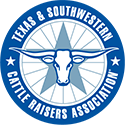Oak (Quercus spp.)
Quercus species are a group of trees and shrubs that comprise more than 600 species throughout the world. More than 35 species and varieties can be found in Texas on a variety of soil types and regions, from the shrubby 3-foot-tall shinnery oaks in sandy areas of West Texas to massive 100-foot-tall live oaks in the Central and southern regions of the state.
The wood from some species is highly valued for making cabinets and furniture and is also harvested for lumber, tannins, cork and as ornamentals. Live oaks were used to provide timbers for the U.S.S. Constitution Naval ship because the wood is so dense it “repelled” cannon balls, resulting in the ship’s name, “Old Ironsides.”
Oak trees have also been an important part of Texas history as a places to hold meetings and elections, sign charters and treaties, and to provide campsites for troops. Many of the state’s oldest, largest, tallest or most famous trees are Quercus species, including an oak in Graham, where one TSCRA legend claims the association’s first official meeting was held.
Quercus species can be divided into two groups: white oaks and red oaks. White oaks usually have a lower tannin content, but both groups produce flowers or catkins in the spring that become acorns in the fall. The acorns were used for food by early Native Americans and are a very important food source for many species of wildlife.
Oaks can be a problem for livestock producers because they harbor a compound called gallotannin that is very toxic to livestock. It is found in the young buds, stems and flowers. The species that seems to produce the most problems is the shinnery oak of West Texas.
Quercus species have also been known to cause poisonings by animals eating large quantities of acorns.
Poisoning can be prevented by practicing good grazing management and avoiding areas of heavy oak population in the spring when new growth is present.
Species such as live oak and members of the red oak group are being killed in Texas by oak wilt, an infectious fungal disease that seems to spread by root grafts and insects. Symptoms vary depending on the species but usually include leaf discoloration, wilt, defoliation and eventually, death. If you suspect an oak wilt infection, contact a licensed arborist or vendor that is certified to identify and treat the disease.
Quercus species can hybridize easily and can be confusing to identify. If they become a problem, they can be controlled on rangelands with a properly-timed application of an herbicide.
Editor’s note: Kent Ferguson, retired rangeland management specialist from USDA Natural Resources Conservation Service (NRCS), is providing us with plant identification photo stories to help ranchers identify those forbs, forages and species growing in the pastures. Additional photos provided by USDA NRCS.
Plant of the Month is excerpted monthly from The Cattleman magazine.




